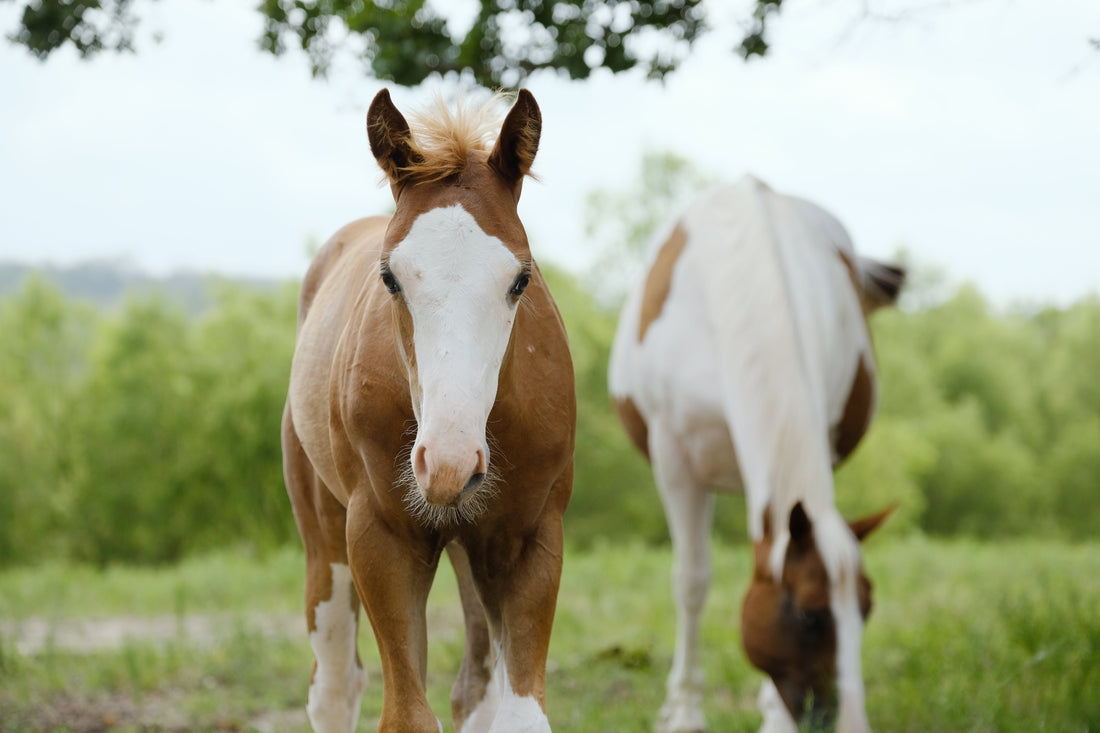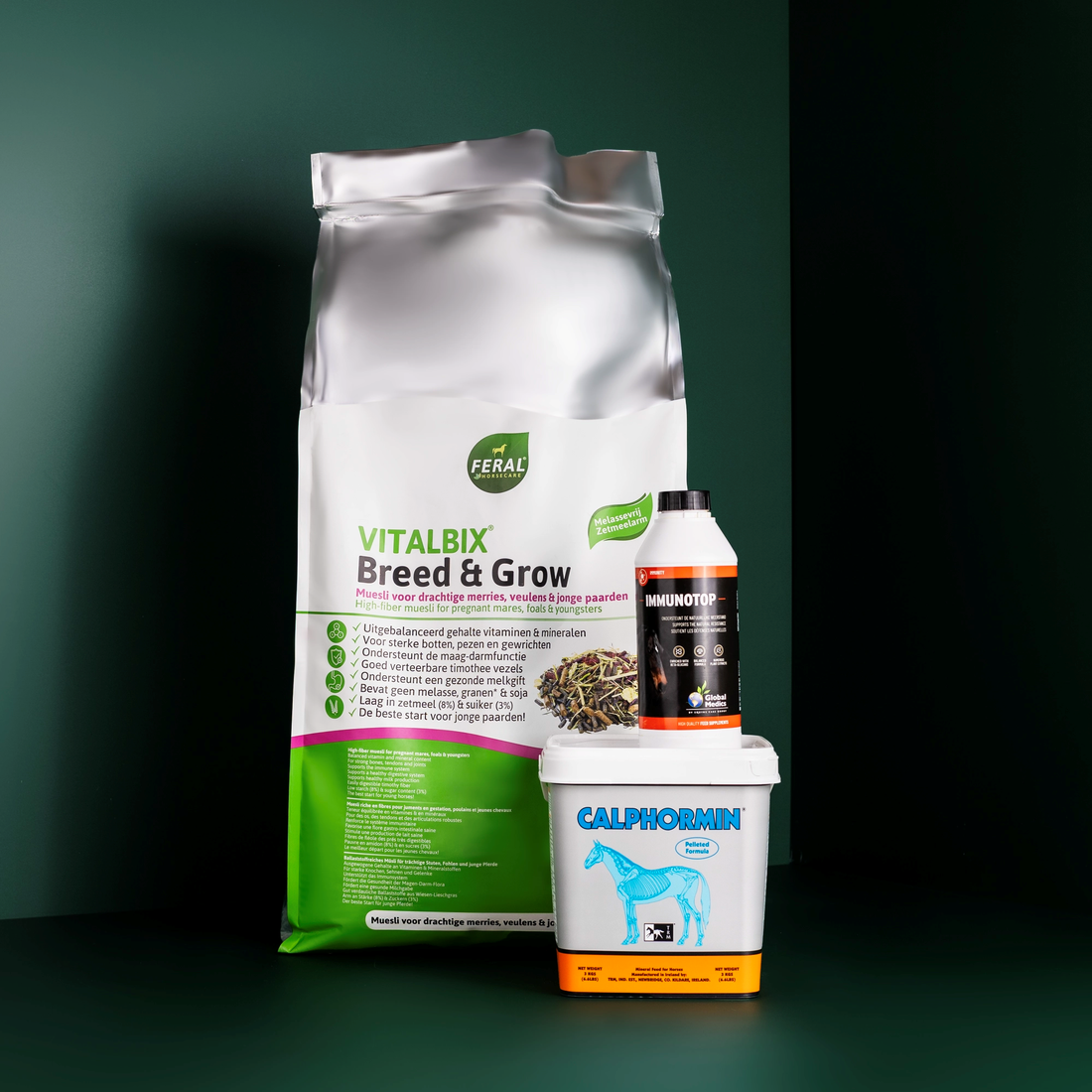Foaling season - what you need to know
3 min

Foaling season is the emotional highlight of the year for many horse lovers . Between foal birth, initial care and the first steps of the offspring, an exciting but also challenging time begins. Good preparation lays the foundation for healthy foal rearing - and thus for strong horses of tomorrow.
Preparing for the foal's birth
Everything should be ready for the foal's safe arrival before the foaling date. A clean, spacious feeding box, a well-stocked emergency kit and as much observation of the pregnant mare as possible are part of the basic equipment. Close communication with the vet is recommended recognize possible complications in good time .
Colostrum - vital first aid for foals
Colostrum or the " first milk" is a key topic during foaling season . It contains vital antibodies , so- called immunoglobulins - special proteins that provide the foal with passive immune defense in the first few hours or life . As the newborn foal's immune system is not yet fully developed , it urgently needs these protective substances to be able to defend itself against pathogens . Sufficient colostrum should therefore be consumed within the first six to eight hours after birth - after that , the intestinal mucosa ability to absorb it decreases rapidly . A blood test after 12 to 24 hours can provide information on whether the supply or immunoglobulins was sufficient .
In an emergency - for example if the mare is not producing enough milk or has a weak suckling reflex - it is advisable to have colostrum replacer and a high-quality foal starter in stock . The latter provides important energy, supports intestinal function and ensures a complete supply of nutrients. In this way, critical phases can be bridged without jeopardizing healthy foal growth.
Feeding foals: From suckling to supplementary feeding
In the first few weeks of life, the mare's milk covers the foal's requirements. However, it soon begins to sniff out the food of the 'big ones' . A gradual introduction of a special foal starter helps with the transition and provides the foal with what it needs. High-quality proteins, a correct calcium-phosphorus ratio and trace elements such as copper, selenium and zinc are important. Feeding errors can lead to developmental disorders - it is worth working with an experienced feeding consultant or vet.
Health care during the breeding season
Basic medical care also plays an important role : worming , vaccinations, initial head corrections and regular weight checks should be firmly planned. Close coordination with the vet and farrier is crucial for healthy development, especially when correcting positioning faults or growth fluctuations.
Social contact and exercise for healthy foal rearing
In addition to physical development, socialization should not be underestimated. Contact with other foals promotes natural behavior and mental maturation. Plenty of exercise in suitable runs with sufficient space, secure fencing and ground with good grip supports the musculoskeletal system and strengthens the heart, lungs and muscles.
Good foal rearing starts with knowledge and preparation
In Foaling Season, emotions can run high: you bear a great responsibility and have to work hard. The right knowledge, suitable products such as “ Foal care ” from TRM and also our “ Equicom New Life Bundle ” ensure the right support for mare and foal.
Those who prepare well will reap the benefits later on ! Because there is nothing more beautiful than a healthy, strong foal that explores the world full of energy. Isn't that the ultimate reward for all your efforts and care?
- Choosing a selection results in a full page refresh.
- Opens in a new window.

